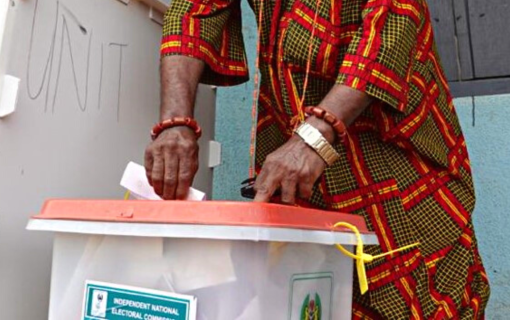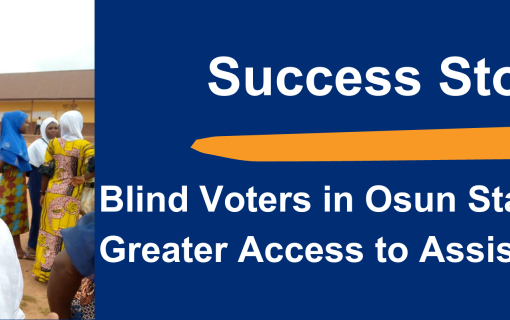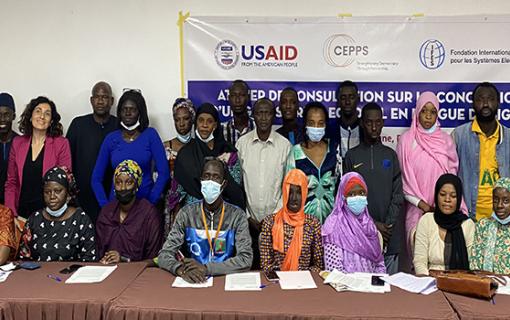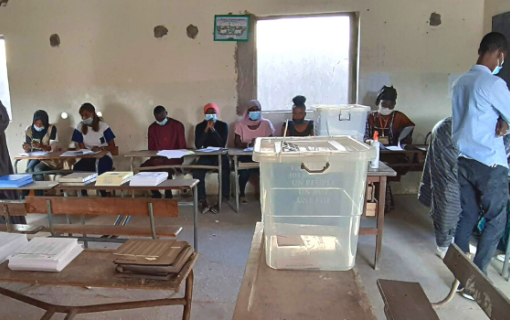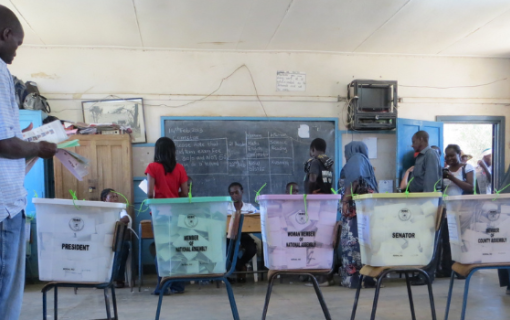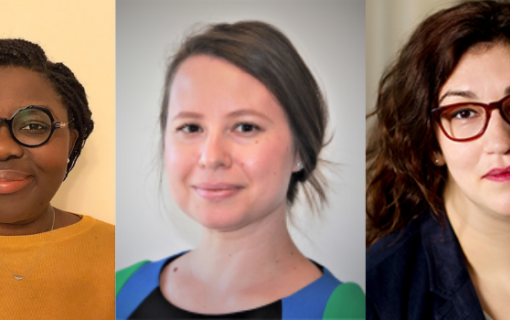IFES South Sudan: Interview with Robert David Irish
IFES’ South Sudan Operations Officer Robert David Irish has been involved in elections for seven years. After observing post-election activities in Ethiopia in 2005, his first IFES project was as an election observer in Haiti in 2006. In 2008, he rejoined IFES as a technical adviser in Iraq. The intervening observation missions to Bangladesh, Sierra Leone and Pakistan provided insight into electoral processes that were applied in Iraq during three elections in 2009 and 2010 and then in southern Sudan during its historical referendum in 2011.
Robert spoke to us about his electoral experiences promoting democracy and governance.
IFES: Hello, Robert. Thank you for sharing your reflections on elections, democracy and governance with the IFES Alumni Newsletter. Your two most recent assignments with IFES have been in Iraq and South Sudan, two post-conflict countries attempting to implement democratic governance structures. In your opinion, what are the most effective ways for the international community to assist countries in establishing sustainable democratic systems?
RDI: Thank you, IFES, for this opportunity. Promoting democracy is not easy in every setting, but to establish genuine electoral processes in places like Iraq and South Sudan are especially challenging. The international community played several key roles in the provincial, regional and national elections in Iraq between 2008 and 2010; the general elections in Sudan in 2010; and the referendum on self-determination in Southern Sudan in 2011. The United Nations (UN), UN Development Program (UNDP) and U.S. Agency for International Development (USAID) provided substantial funding for technical assistance and commodities in support of the electoral commissions in both countries. IFES was the key implementing organization for USAID, while the UN deployed its Electoral Assistance Division.
In Sudan, UNDP managed the European Union basket fund for the elections and referendum.
International support to electoral management bodies (EMBs) can contribute to genuine electoral events. However, the most effective ways to ensure democratic sustainability is to remain engaged after elections and encourage political willingness among elected leaders to be held accountable to voters. All too often international donors support elections with observation or technical assistance, but once the results are finalized and operations end, those organizations depart, providing little-to-no post-election support or guidance.
Democracy is not an event, but an ongoing process that requires long-term institutional development to be most effective.
If the international community wants to institutionalize democratic governance systems in post-conflict countries, then substantial investment is required to provide credible legal frameworks, build professional EMBs and sustain public outreach programs that sensitize government and civil society leaders to the merits of participatory decision making.
IFES: Given your involvement with election observation and technical assistance in Africa, South Asia and the Middle East, what experiences stand out?
RDI: Every mission has high points and low points and each is unique in its implementation. The most memorable experience – the one I feel most honored to have played a part in – would be IFES’ South Sudan mission. The hard work and dedication of our team during the southern Sudan referendum for self-determination in January 2011 resulted in an independent Republic of South Sudan!
For me, working closely with the Southern Sudan Referendum Bureau in Juba and witnessing the enthusiasm and commitment of the officials and IFES advisers as they struggled with tight deadlines and limited resources was special. How often does one have the opportunity to support a genuine electoral process that enables a long-oppressed people to decide their own fate?
IFES: Your first five missions involved electoral observation. What are the different roles that national observer groups, international observer missions and media serve when witnessing elections?
RDI: The key roles of observers and media are to provide accountability, enable participation and encourage legitimacy in electoral processes. In my opinion, national observer groups are most important because they not only provide a larger scope of coverage than international missions, but usually consist of volunteers from the local communities where the polling stations are located. If properly trained and committed to observation principles, local observers have the potential to provide a greater sense of local and national legitimacy to an electoral event. Conversely, if the event is seriously tainted, then confirmation by local observer groups is vital to holding the EMB, political parties and government accountable. International observers also play an important role in garnering international attention, encouraging appropriate government behavior and highlighting technical issues. The mere presence of internationals at a polling center can deter irregularities.
Media is the ultimate watchdog of any electoral process, but only if the media channels are free to report and not constrained by official restrictions or unofficial pressures.
IFES: In a similar vein, what is the difference between observation and technical assistance? What are the key elements for effective technical assistance programs?
RDI: In the electoral industry, there is a significant difference between the roles and impact of observation and technical assistance: observation is passive, while technical assistance is active.
International advisers are typically mandated to work directly with EMB counterparts to aid and assist with activities necessary to manage and administer electoral events. Consequently, the impact of professional guidance and technical recommendations has the potential to shape the credibility of the process. Advisers have the opportunity to identify small problems before they become big problems and recommend solutions in advance of Election Day. Most observer missions engage the process a short time before the electoral event and are mandated to only witness and comment on activities in a purely non-interventionist role. As a result, their impact is limited in scope.
In my opinion, the most effective technical assistance programs are those that empower the EMB to professionalize its administrative and operational activities. Genuine engagement that builds real capacity, rather than papers over deficiencies for the sake of conducting a scheduled event, will encourage local buy-in and a more sustainable electoral process. Supporting the development and implementation of modern legal and regulatory frameworks for conducting elections is essential to long-term institution building. When more than one international electoral assistance provider is involved, coordination and cooperation between organizations are vital to avoid duplication of efforts, confused messages and the EMB playing the groups off each other.
IFES: You mentioned that IFES’ Haiti mission in February 2006 was your second electoral project. How did you get started in the election field and what roles have your colleagues played in developing your career?
RDI: After a year of graduate school at the University of Amsterdam, I was in Manhattan in June 2005, on my way to San Francisco to start drafting my master’s thesis, when I received a call from a former university colleague: “Hey, Rob!” he said, “What are you doing this summer? Do you want to come to Ethiopia?”
I quickly replied: “Yeah! Oh wait, what do you want me to do?”
My friend was the field office director for The Carter Center and was assembling a post-election observation mission. He needed someone with an international relations and legal analysis background. I spent two months that summer conducting stakeholder interviews and observing electoral dispute resolution hearings in provincial areas. I was hooked!
I am a networker by nature, and one of my new electoral colleagues from Ethiopia referred me to IFES for the Haitian elections in early 2006. I credit those few weeks of observation with advancing my electoral career, as I kept in touch with more than a dozen of my fellow observers. Those IFES connections resulted in my third observer mission to Bangladesh with the International Republican Institute in late 2006 and then a five-month observer mission to Sierra Leone with the National Democratic Institute in mid-2007.
In the electoral industry, relationships formed and contacts maintained are nearly as important as technical skills for winning new missions.
IFES: After seven international missions, what would you recommend to other electoral practitioners seeking to advance their careers?
RDI: “Know your stuff!” is the first thought to cross my mind.
Research, study and learn electoral systems and electoral management in all its administrative, regulatory, financial, operational and logistical facets so you can provide quality observation or technical assistance. No matter how many influential people one may know, performance counts! If the program does not benefit, your career will not advance.



